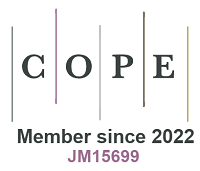Research Article | Open Access
Self-limited atomic-layer tin-sulfides with high-electron-intensity interface induced ultrathin SEI for fast-charging sodium-ion batteries
Views: 9
Chem. Synth. 2025;5:[Accepted].
Author Information
Article Notes
Cite This Article
Abstract
Fast-charging batteries that can be charged in minutes and stored enough energy are highly desired in the electric vehicle and grid storage, but are usually limited to the electrodes with lower carrier diffusion. Herein, self-limited 1, 2, and 3 monolayers SnS2 on the graphene were fabricated as fast-charging anodes for sodium-ion batteries (SIBs). The tunable atomically-thin SnS2 compound were confirmed via synchrotron high-pressure powder X-ray diffraction, atomic force microscope, and low-dose transmission electron microscopy. The 1, 2, 3 atomic-layer SnS2 showed ultra-high phase contact of discharged products, thus high bulk Na+/electronic conductivity was acquired. Simultaneously, ultra-thin and NaF, Na2CO3-riched solid-electrolyte interphase (SEI, 6 nm, Cyro-TEM) was oriented construction in ester electrolyte. Benefited from the synergistic effect of bulk phase and SEI, the obtained 3-monolayer SnS2 anode achieved fast-charging capacity of 300 mAh g-1 at 30 A g-1 with 36 seconds, exhibiting new height of fast-charging ability in SIBs. Meanwhile. it performed long-cycling stability with negligible capacity decay for 600 cycles. The assembled pouch cell with Na3V2(PO4)2F3 cathode showed high-energy-density of about 187.5 Wh kg−1. The atomic-layer leveled regulation method paves a way for precise synthesis of materials at the atomic level and oriented design of fast-charging rechargeable batteries.
Keywords
Fast-charging anode, sodium ion batteries, atomic-layer material, interface, self-limited growth
Cite This Article
Gai J, Song K, Pang R, Liu L, Dai H, Du H, Yang T, Li S, Sun S, Liu Q, Cao Y, Han Y, Chen W. Self-limited atomic-layer tin-sulfides with high-electron-intensity interface induced ultrathin SEI for fast-charging sodium-ion batteries. Chem. Synth. 2025;5:[Accept]. http://dx.doi.org/10.20517/cs.2024.91
Copyright
© The Author(s) 2025. Open Access This article is licensed under a Creative Commons Attribution 4.0 International License (https://creativecommons.org/licenses/by/4.0/), which permits unrestricted use, sharing, adaptation, distribution and reproduction in any medium or format, for any purpose, even commercially, as long as you give appropriate credit to the original author(s) and the source, provide a link to the Creative Commons license, and indicate if changes were made.












